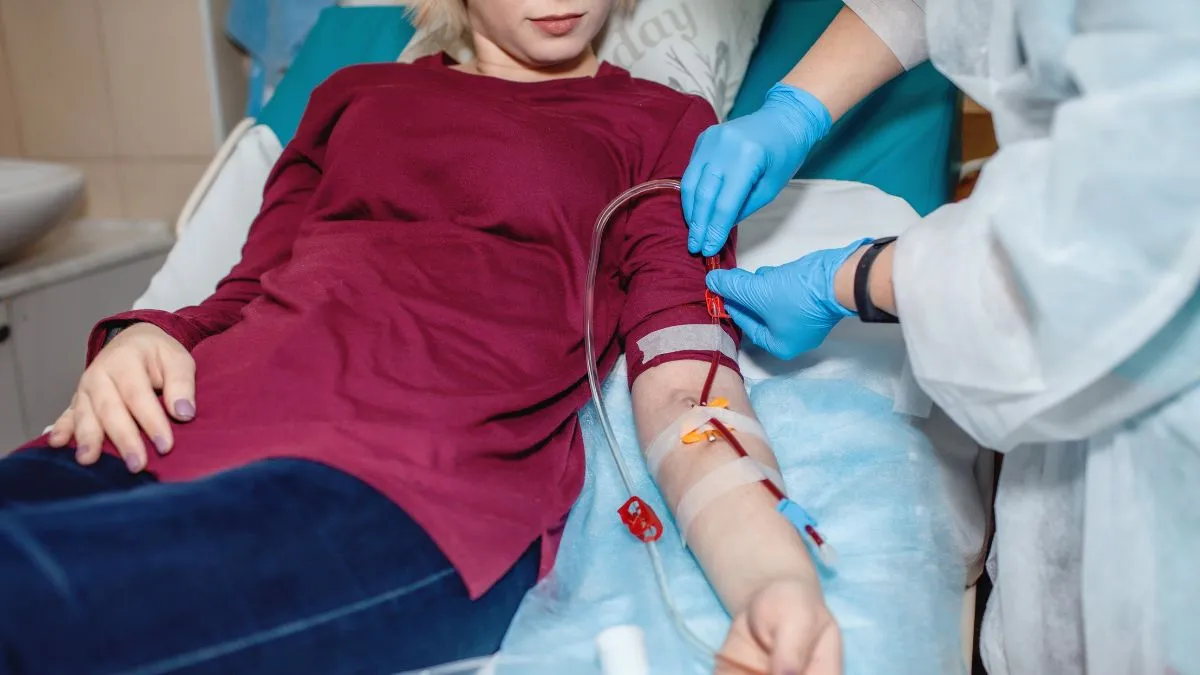- By Priyanka Munshi
- Tue, 25 Mar 2025 05:00 PM (IST)
- Source:JND
Hypertension (HTN) is a leading cause of Chronic Kidney Disease (CKD), while nearly 95% of CKD patients eventually develop high blood pressure. This creates a vicious cycle—if left unmanaged, each condition exacerbates the other, accelerating organ damage. The kidneys play a crucial role in filtering waste, maintaining fluid balance, and regulating electrolytes. In CKD, their ability to eliminate sodium and fluids diminishes, leading to increased blood pressure or worsening pre-existing hypertension.
Additionally, the kidneys are responsible for sensing blood pressure, sodium levels, and overall fluid balance. They release hormones and activate the sympathetic nervous system to maintain stability. However, in CKD, these mechanisms become impaired, causing persistently high blood pressure. In a conversation with Jagran English, Dr. Avinash Ignatius, DM (AIIMS), a Senior Nephrologist and Transplant Physician at Ruby Hall Clinic in Pune, discussed the lethal combination of kidney disease and hypertension.
According to Dr. Avinash Ignatius, managing hypertension in CKD is particularly challenging. While individuals with hypertension may require one or two medications, those with CKD often need four to six or more to control their blood pressure. Uncontrolled hypertension accelerates kidney function decline, and as CKD progresses, rising potassium levels can limit the use of certain medications that would otherwise be beneficial.
Also Read: Simple And Effective Exercises To Reduce Belly Fat In Just 21 Days
Beyond kidney damage, this combination significantly increases the risk of heart disease, heart failure, and stroke, ultimately reducing both quality of life and life expectancy.
Prevention And Early Intervention
Preventing hypertension and CKD starts with adopting a healthy lifestyle from an early age. This includes:
- Reducing salt intake – Establishing mindful eating habits in childhood can lower the risk of hypertension later in life.
- Avoiding junk and ultra-processed foods – These often contain excessive sodium and unhealthy fats, contributing to obesity and high blood pressure.
- Limiting sugar consumption – Sugary drinks and foods drive obesity, a major factor in hypertension.
- Engaging in regular physical activity – Exercise helps maintain a healthy weight and improves cardiovascular health.
- Managing stress and prioritizing relaxation – Chronic stress can elevate blood pressure over time.
- Avoiding self-medication – Painkillers, unverified supplements, and herbal remedies can be harmful to kidney function.
For individuals already diagnosed with hypertension, regular kidney function screening is essential. At least once a year, they should undergo tests such as serum creatinine, estimated Glomerular Filtration Rate (eGFR), and a urine routine to check for protein. Early detection allows for the use of kidney-protective medications that can slow or even reverse CKD progression.
At last, Dr. Avinash Ignatius, DM (AIIMS), a Senior Nephrologist and Transplant Physician at Ruby Hall Clinic, emphasized that patients with CKD must take extra care in managing their blood pressure through a well-balanced diet, consistent medication use, and lifestyle modifications. With early detection and the right interventions—through diet, lifestyle, and kidney-protective medications—it is possible to maintain a healthy, active life for decades despite these conditions.

